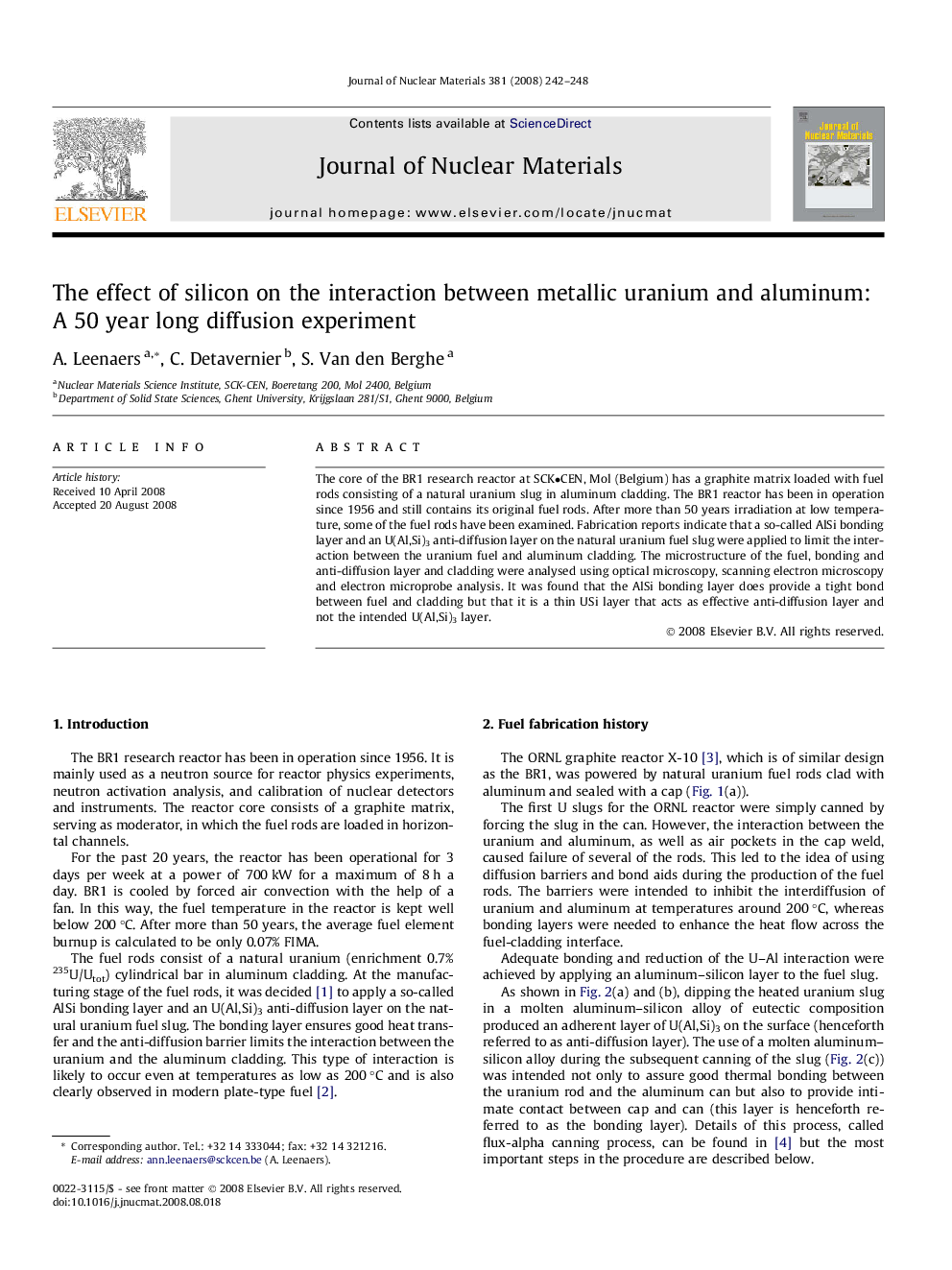| کد مقاله | کد نشریه | سال انتشار | مقاله انگلیسی | نسخه تمام متن |
|---|---|---|---|---|
| 1568473 | 999896 | 2008 | 7 صفحه PDF | دانلود رایگان |
عنوان انگلیسی مقاله ISI
The effect of silicon on the interaction between metallic uranium and aluminum: A 50 year long diffusion experiment
دانلود مقاله + سفارش ترجمه
دانلود مقاله ISI انگلیسی
رایگان برای ایرانیان
موضوعات مرتبط
مهندسی و علوم پایه
مهندسی انرژی
انرژی هسته ای و مهندسی
پیش نمایش صفحه اول مقاله

چکیده انگلیسی
The core of the BR1 research reactor at SCK
- CEN, Mol (Belgium) has a graphite matrix loaded with fuel rods consisting of a natural uranium slug in aluminum cladding. The BR1 reactor has been in operation since 1956 and still contains its original fuel rods. After more than 50 years irradiation at low temperature, some of the fuel rods have been examined. Fabrication reports indicate that a so-called AlSi bonding layer and an U(Al,Si)3 anti-diffusion layer on the natural uranium fuel slug were applied to limit the interaction between the uranium fuel and aluminum cladding. The microstructure of the fuel, bonding and anti-diffusion layer and cladding were analysed using optical microscopy, scanning electron microscopy and electron microprobe analysis. It was found that the AlSi bonding layer does provide a tight bond between fuel and cladding but that it is a thin USi layer that acts as effective anti-diffusion layer and not the intended U(Al,Si)3 layer.
- CEN, Mol (Belgium) has a graphite matrix loaded with fuel rods consisting of a natural uranium slug in aluminum cladding. The BR1 reactor has been in operation since 1956 and still contains its original fuel rods. After more than 50 years irradiation at low temperature, some of the fuel rods have been examined. Fabrication reports indicate that a so-called AlSi bonding layer and an U(Al,Si)3 anti-diffusion layer on the natural uranium fuel slug were applied to limit the interaction between the uranium fuel and aluminum cladding. The microstructure of the fuel, bonding and anti-diffusion layer and cladding were analysed using optical microscopy, scanning electron microscopy and electron microprobe analysis. It was found that the AlSi bonding layer does provide a tight bond between fuel and cladding but that it is a thin USi layer that acts as effective anti-diffusion layer and not the intended U(Al,Si)3 layer.
ناشر
Database: Elsevier - ScienceDirect (ساینس دایرکت)
Journal: Journal of Nuclear Materials - Volume 381, Issue 3, 15 November 2008, Pages 242-248
Journal: Journal of Nuclear Materials - Volume 381, Issue 3, 15 November 2008, Pages 242-248
نویسندگان
A. Leenaers, C. Detavernier, S. Van den Berghe,